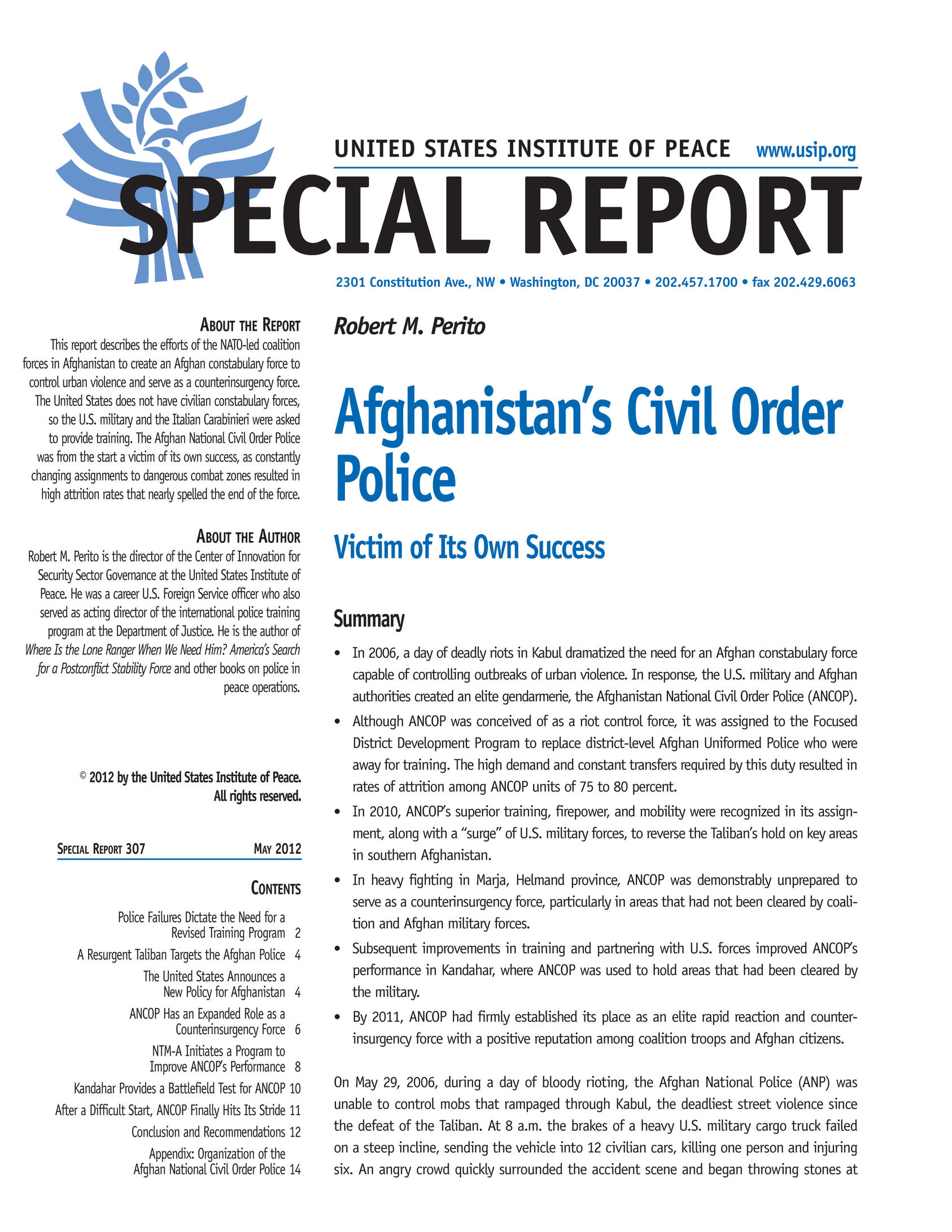Afghanistan's Civil Order Police
This report describes the efforts of the NATO-led coalition forces in Afghanistan to create an Afghan constabulary force to control urban violence and serve as a counterinsurgency force.

Summary
- In 2006, a day of deadly riots in Kabul dramatized the need for an Afghan constabulary force capable of controlling outbreaks of urban violence. In response, the U.S. military and Afghan authorities created an elite gendarmerie, the Afghanistan National Civil Order Police (ANCOP).
- Although ANCOP was conceived of as a riot control force, it was assigned to the Focused District Development Program to replace district-level Afghan Uniformed Police who were away for training. The high demand and constant transfers required by this duty resulted in rates of attrition among ANCOP units of 75 to 80 percent.
- In 2010, ANCOP’s superior training, firepower, and mobility were recognized in its assignment, along with a “surge” of U.S. military forces, to reverse the Taliban’s hold on key areas in southern Afghanistan.
- In heavy fighting in Marja, Helmand province, ANCOP was demonstrably unprepared to serve as a counterinsurgency force, particularly in areas that had not been cleared by coalition and Afghan military forces.
- Subsequent improvements in training and partnering with U.S. forces improved ANCOP’s performance in Kandahar, where ANCOP was used to hold areas that had been cleared by the military.
- By 2011, ANCOP had firmly established its place as an elite rapid reaction and counterinsurgency force with a positive reputation among coalition troops and Afghan citizens.
About the Report
This report describes the efforts of the NATO-led coalition forces in Afghanistan to create an Afghan constabulary force to control urban violence and serve as a counterinsurgency force. The United States does not have civilian constabulary forces, so the U.S. military and the Italian Carabinieri were asked to provide training. The Afghan National Civil Order Police was from the start a victim of its own success, as constantly changing assignments to dangerous combat zones resulted in high attrition rates that nearly spelled the end of the force.
About the Author
Robert M. Perito is the director of the Center of Innovation for Security Sector Governance at the United States Institute of Peace. He was a career U.S. Foreign Service officer who also served as acting director of the international police training program at the Department of Justice. He is the author of Where Is the Lone Ranger When We Need Him? America’s Search for a Postconflict Stability Force and other books on police in peace operations.



